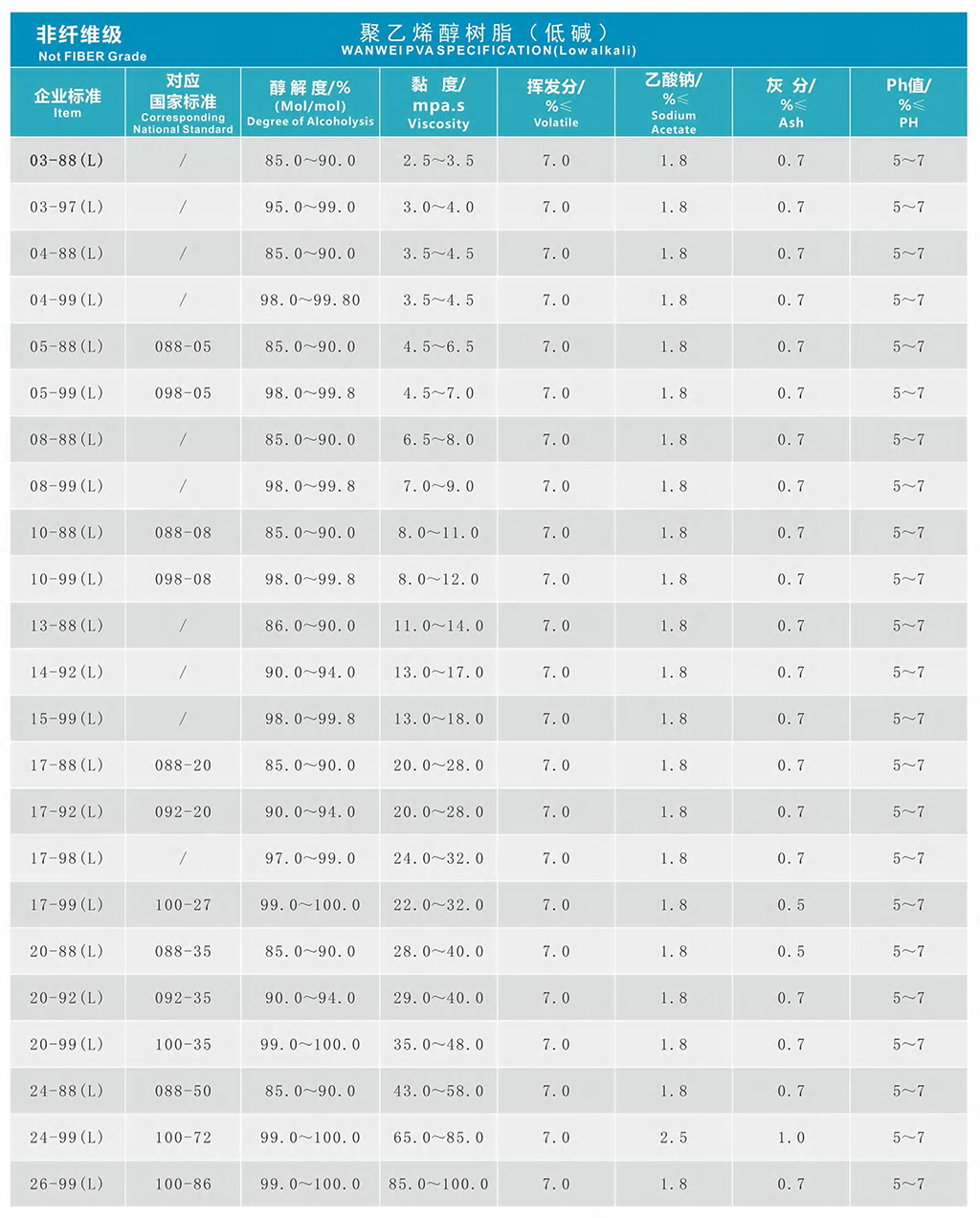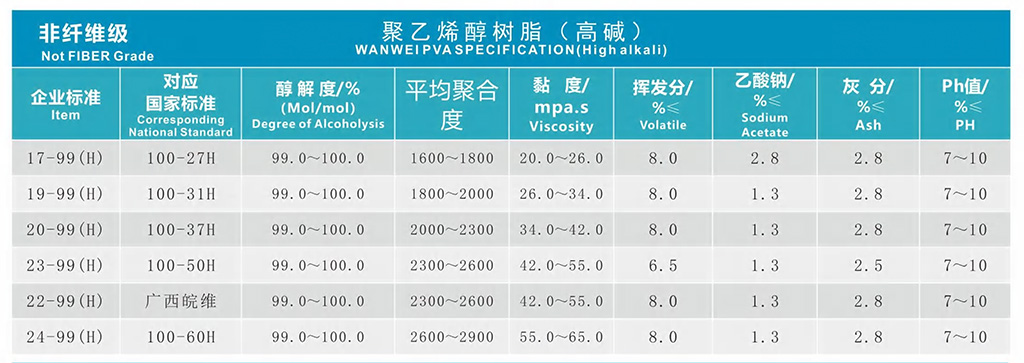PVA
Polyvinyl Alcohol
Overview
PVA products are solid, and their appearance can be divided into white flake, granular, powder(low alkalysis process) or flocculent (high alkalysis process).
Specific gravity: 1.19-1.31g/cm, flake PVA filling specific gravity of 0.42-0.51g/cm, flocculent PVA filling specific gravity of 0.20-0.27g/cm.
The structural formula of PVA is -[CHCH(OH)]n-, where n represents the average degree of polymerization. The basic properties of PVA are determined by its average degree of polymerization and alcoholysis, but because there are more than 10 kinds of irregular structures in pVA molecules, it also has great influence on its properties.
Water soluble: PVA molecules contain a large number of hydroxy! groups and are highly soluble in water. Its solubility increases with the increase of water temperature, only expands in cold water (low alcoholysis products can slowly dissolve in normal water), can be completely dissolved in hot water, its aqueous solution has good’ film formation and cohesiveness.
Thermal stability: PVA series products soften when heated, there is no significant change below 40°C, over 160°C for a long time heating will gradually color,
above 220°C decomposition, production of water, acetic acid, acetaldehyde and butenal.
Chemical resistance: PVA series products are almost unaffected by weak acid, weak base or organic solvent, oil resistance is very high.
Storage stability: PVA series products have good stability, no mildew, no deterioration, no moisture absorption in the natural dry state of long-term storage.
PVA is a polymer with a secondary hydroxyl group. The secondary hydroxyl group, in the ‘PVA formula has high activity and can carry, out typical chemical reactions similar to low molecular alcohol, such as esterification, etherification, acetalization, etc, and also react with many inorganic and organic compounds. It is non-toxic to humans and animals and can degrade naturally. It is called green product.


